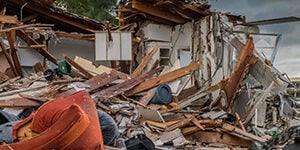Hey everyone! It’s been awhile since I shared any stories. Let me tell you about Lesotho.
Lesotho (le-SOO-too) is the tiny country that is landlocked solely by South Africa. Unlike the surrounding mostly-flat South African landscape, Lesotho is a mountainous place; the country’s official/formal name is “The Mountain Kingdom of Lesotho”. It has also been nicknamed “The kingdom in the sky”.
While there are many urban cities dotted all around near its borders, the further in you go, the more rural and remote it becomes. The area we were in was completely surrounded by a ring of mountains, and was nothing but rolling hills and river-valleys itself. The region did not have power lines, and so the people there got by with limited solar power. The main water pump that our hosts got their water from was solar powered, but the panel had to be installed and taken down each morning and evening to avoid theft, since it connected directly to the pump located out in a remote field beside a creek.
Aside from how beautifully mountainous and hilly the place was, it mostly reminded me of my mother reading Little House on the Praire to me when I was a child. The people there lived in single-room houses they built themselves, and lived off of farming and livestock. More than once as I walked down the single dirt road that wound through the region I passed by a man plowing a field with a handheld plow hitched to a team of oxen. Dotted all over the foothills and fields were small groupings of cows and sheep, herded by shepherds. Tied to trees in peoples’ yards were a few pigs grazing on whatever they could find within their rope’s reach. Trees were sparse and for the most part you could always look about you and see for miles. Dotted across the wide landscape within the encircling mountains were many villages. These were literally just groupings of houses close together; there was no real infrastructure here. Only a couple of vans that ran a couple times a day as taxis to the nearest town a couple hours out of the mountains.
It was, emotionally and physically, possibly the most beautiful place I’ve ever been. A month there has given me insight into the backpacker’s heart; to be there and experience a raw land in person. Pictures cannot do justice. There is something deeply touching and fulfilling about seeing a landscape that is enjoyed by its inhabitants, while also being virtually unchanged by them through time.
Unfortunately, such a place is not without its flaws. Walking back home after a morning of visiting people in a village, our interpreter, a local a little younger than I, was telling me about differences in the ‘new culture’ christianity brought compared to old tradition. Chief among them was how differently marriage was handled by believers. For the non-religious in the area, marriage was a bit less formal and a bit more compulsory for the woman. “Ooh! Yah, i’s so terrible”, he would say while explaining that traditionally, a man would simply kidnap a woman he wanted from another village, carrying her away on horseback. The worst part, he told me, was that the woman would stay because she could not return to her family with dignity once she had been raped. Incredulous, I asked him if he meant to say that this still happened. And he said yes, men who were not believers would sometimes still do this in the rural areas.
Thankfully though, there were a handful of churches sprinkled about the region, with one being on our hosts’ property. And church was run differently here than most places I had been to so far. They would start with singing, lots of singing. Usually there was one woman in charge of leading the congregation, and she would do so by belting out the first line of a song, with everyone else joining in on the second line. This particular church had a single djembe and an ancient Casio keyboard to accompany the singing. Songs were relatively repetative and easy to pick up (Even if you didn’t speak Sotho), and would also end abruptly with the lady beginning a new song above the noise of the others singing. Eventually, certain groups would come up to the front and present their own song they had prepared for the service. After many more songs, there were testimonies, in which anyone present may come up and say what God had done for them or their families recently. After this was usually a message or lesson from the bible, with the service ending with more songs. The whole service typically ran from 10 am to 2 or 2:30 pm, after which was a lunch shared by the whole congregation.
All in all, Lesotho was an unforgettable rural month. But I’ll leave you with the image that amused me the most there: a small solar panel sitting on the ground outside a farmer’s stone & mud hut, hooked up to his smart phone so it could charge while he let the sheep out of their pen to pasture









